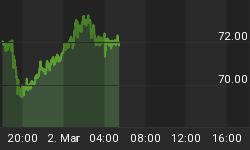In my last article, I talked about the importance of getting clients to focus on their progress towards a long-term goal rather than on near-term performance. This is to help the clients, not to help the manager, but decreasing performance myopia is also a good thing for the manager. In addition to the obvious reasons this is true - less client turnover means fewer frictional costs for the manager - there is the less-obvious effect that it has on manager behavior. If our clients aren't demanding that we chase a hot trend or hot stock or hot sector or hot asset class, it means they are also not rewarding those behaviors…and that, in turn, means that the manager can also focus on the long term, to the benefit of the client.
Focusing on progress towards a long-term goal can, unfortunately, introduce other problems. For one thing, it is hard to compare managers on the basis of how their existing clients are progressing successfully towards long-term goals. It is very easy to compare managers on the basis of the historical performance of client portfolios, and indeed both regulators and industry organizations like the CFA Institute have detailed rules about how client performance should be presented to as to make them more easily comparable. So, if my clients are making excellent progress towards their long-term goals but have "underperformed" this year because they didn't own Tesla, the prospective client who is comparing our performance will probably go to the manager who is invested in that money-losing cult of personality.
Another problem with focusing on the long run is that there are lots of ways to make it appear as if progress is being made, or that the client is doing better than they really are, by tweaking assumptions. An unscrupulous manager could, for example, assume that stocks are going to have a return equal to their prior 5-year return (which right now is pretty darn good), but if the stock market begins to decline the manager could change his mind and instead decide that a 7% nominal return is appropriate. If we are basically trained hamsters pushing the levers that get us the treat from our clients, then there is an incentive to show them good news. In short, it's harder to disguise adverse changes in current portfolio value than it is to disguise adverse changes in client progress towards a goal.
As an example of this behavior, consider the long-recognized problem that exists in the pension fund industry. A pension fund's funded status depends importantly on the rate of return it assumes on the assets which are intended to provide for the fund's future liabilities. And those assumptions have been ridiculously high for years. There is a great recent article by Pension & Investments Online ("Investment return assumptions of public pension funds") that illustrates the point. Since 2001, the average return assumptions of pension plans has declined from 8% to 7.6%, despite the fact that asset markets are higher now than they were in 2001 (some of them, such as bonds, drastically so). In 2015 pension funds assumed, on average, a 9.7% return on US equities and a 15.2% return (!!) on real estate. Clearly, the models that pension funds use - or hire similarly-incentivized consultants to create - are not consistent with what we know about how markets really behave. But they're very convenient for showing progress towards being fully funded.
So if a manager wants to help clients focus on the long-term - which he/she should - then he or she needs to use models that are conservative, and that do not get tweaked favorably over time. One way to do that is to employ a third-person analyst that deploys arm's-length projections, and ideally one who is compensated over time on the basis of the long-term accuracy of the projections…but, since that sort of analytical contract is not generally available, a minimum requirement should be that the manager transparently disclose to clients the asset-class projections currently being used, and the method for generating them.
It is probably self-serving to point this out, but in that vein a manager who frequently exposes his thought processes to the blogosphere, in books, and in speeches is probably a safer bet than a manager who forwards you his company's latest article on stocks for the long run.
P.S. Don't forget to buy my book! What's Wrong with Money: The Biggest Bubble of All. Thanks!
You can follow me @inflation_guy!
Enduring Investments is a registered investment adviser that specializes in solving inflation-related problems. Fill out the contact form at http://www.EnduringInvestments.com/contact and we will send you our latest Quarterly Inflation Outlook. And if you make sure to put your physical mailing address in the "comment" section of the contact form, we will also send you a copy of Michael Ashton's book "Maestro, My Ass!"















